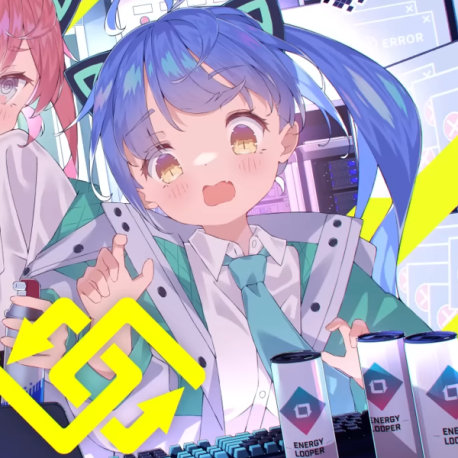My experience with being perceived as “high-functioning” is so negative because it primarily comes from the sacrifices I make at the cost of my health in order to keep up with social expectations
I have to actively choose between taking care of myself and fulfilling responsibilities because I don’t have energy for both (I usually wouldn’t even call it a choice given that adult life especially isn’t the most forgiving)
Anybody else?
Pretend you don’t have problem. Wow, where did problem go? It must have been imagination. Now behave like person with no problem plz.
I see downvotes, so I apologize. I tried to humorously agree with the frustration, but the way I wrote it was apparently bad.
People seem to think that if you can be pressured to do the same as a person with no issues, they can expect to treat you as if you have no issues. It sucks.
Even thinking about ASD as a possibility for me is a very new thing, so I don’t know with any certainty I fall here, but learning about “high-functioning” autism as being “successfully masked” has made me seriously begin exploring this. Psychiatrists were hesitant early on to entertain any discussions (edit: of any neurodivergence) because I’d been so successful in school and career, even though I was always dying inside feeling like an imposter in society and not knowing who I am and why every interaction feels so difficult and requires so much effort. Why does just existing feel so deeply uncomfortable?
I wrote off the idea of high-functioning ASD because I certainly didn’t feel high-functioning, despite my successes, because of the feeling of claustrophobia in my own skin. I wrote off any other higher needs because I didn’t have those needs and I’d exhausted a lot of time and effort to not need those supports… Which in hindsight, is probably not typical.
Neurodivergence is so often defined by the ability to fit in and avoid disrupting typical society and norms. I wasn’t depressed enough because I went into work enough days. I wasn’t ADHD enough because I wasn’t disrupting other people’s lives and breaking social rules and got good grades. I wasn’t autistic enough because I learned to to navigate social situations (read: only engaged in social situations where I’m in a position of control or known mutual interest).
“High-functioning” for whom?
Anyways again, I’m new to even remotely considering autism for me, so I apologize if this is wholely unrelated and unrelatable, but whatever flavour my brain is, it tastes a lot worse than it smells (only figuratively… As far as I know).
What you describe is eerily similar to my story. In summary, being so good at masking all the various symptoms of depression/anxiety/autism that I never considered it possible I was autistic. My entire life I’ve never belonged to the group I was participating with, I was always a step removed because the “language” of the group wasn’t native and took a degree of effort/concentration to use. That’s a tangent…
The question was raised by a new friend a few years ago and I finally got professionally evaluated a few months ago. Yeah, I’m obviously autistic.
Having that label, in my experience, has been intensely validating. No longer was my status as a social failure an implication of my lack of effort or disrespect for others or oversensitivity. Now I knew that I didn’t fit for a reason, a reason outside my control and not just laziness or selfishness.
That separation–being other, not belonging–absolutely still exists and it still is painful but now the difference I guess is that I know I’m not imagining it.
To your case; maybe getting evaluated could be a good idea. It opens up access to workplace
accomplishments[EDIT: accomodations] that can, so easily, make a living less painful to earn. Or it can just bring a sort of peace-of-mind like mine did.The label itself isn’t terribly important. So long as you understand yourself and are comfortable with who you are, maybe you don’t need a doctor to certify that you are exactly this-kind-of-weird. I went into my evaluation expecting I wouldn’t qualify for an autism diagnosis but rather satisfied already with my own conviction that I was not neurotypical.
I really appreciate hearing this. I was diagnosed ADHD almost a year ago, and it made a lot of things make sense, but therapy continues coming back to, “Yes, definitely the ADHD, it’s obvious now, but there’s just something… else.” I’m going to begin trauma therapy soon, but stumbling upon some information on autism made me immediately recoil and say “That can’t be me”. When I learned a bit more, I realized where the reaction came from. I’ve spent a lot of time and energy avoiding and pushing away those traits. I blocked out a lot of memories as a kid, and as soon as I read about common autistic behaviours in children I started to be able to see those things and remember them and not immediately recoil, but suddenly consider them as something that really happened.
I think that’s the real fear of “high-functioning”, whatever it is, without having a label/diagnosis. Yes, I’m participating in society, I’m doing well, people like me, I’m good at my job - I guess it’s just that the cost of it is everything that makes me me, and if that’s normal, I don’t understand how anyone gets by - and if it isn’t normal, then what is it so much harder for me, and what does it mean for me?
So yeah, I do think I might look into assessment. I think for me, I’ve just pushed myself so hard for so long and blamed myself for so much that painful perseverance is deeply ingrained. Even though I should be able to follow my needs and rhythms without a diagnosis, it’s a lot easier to look at yourself when you can see the full picture and be properly honest.
Plus, masking is exhausting, even when it’s subconscious. Learning about ADHD got me to learn some things I’d been painfully masking without being completely aware. There’s a lot of programming in me that feels natural, but it’s just a reaction to how things “should” be done that really don’t need to be there.
So yeah, I really appreciate the comment, and I think I’ll probably find a lot of commonalities in your journey :)
Thank you, hearing that my words were valuable to you is probably the most valuable gift you could have given
Pretty much.
I spend my workweek masking, so when I get home to my family I’m too socially exhausted to do much more than repetitive behaviors, and socializing, even with family, is grating. I feel like I can breathe when I’m alone and not feeling watched/observed/perceived, but I still need time to let my hackles drop. It makes laundry, cleaning, preparing meals, shopping, running errands, scheduling, etc., so fucking hard to do, and it’s like I have a limited amount of attention/energy to devote to things, regardless of how much time I have. There are days when I get weeks worth or work done and months when I struggle to tread water.
The one bright light is that there are family members who don’t understand, but are patient, and ones who DO and I’m getting more comfortable saying “I don’t hate you, I love you, I just can’t stand you right now and I don’t want to snap at you to get you away from me, so please let me be”.
It was easier to balance when I had a more solitary job but… I couldn’t live on that money for long, so… :/
You know, I hadn’t thought about it too much in this context, but I do more or less the same. When I’m around anyone at all, I’m conscious of all my behaviors. The only way I can really turn it off is weed/alcohol, and even then the instinct is just dulled a little, not switched off. I don’t think the majority of people are nearly that aware of how each movement or sound they make might be perceived by others. It’s largely unconscious for most. And I don’t think it’s an inherent wiring difference either.
I think growing up different and constantly having it impressed upon you that every single way you’re different is wrong takes a toll. Other people are pushing you into a box and demanding you behave this way, not that way. Until you either learn to reject (at least some of) those rules or are pushed so far you burn out and can no longer conform, it’s constant stress. And it’s so constant that you probably aren’t even fully aware of it, particularly if you’re also alexithymic and generally have to work harder to identify your emotional state/response to a situation under the best of circumstances.
This leads me to another aspect. If we’re viewed as too rigid, then allistics’ intrinsic/core selves are perhaps comparatively more malleable. Their core underlying personality is perhaps more ready to adopt the behaviors and beliefs of the group. Quicker to be guided by faith. In which case, perhaps for an allistic person, this pushing and prodding doesn’t create this emotional/mental tension in the same way it does when it pushes an autist to mask. Granted, this feels like it’s painting an unreasonably broad brush, but maybe there’s something to it.
Also, the most solitary jobs I know of are in the tech industry. Otherwise, for really isolated jobs, maybe fire watch or possibly lighthouse work if there are openings. If you have relevant skills, you might be able to work in web design, system administration, or as a programmer (“individual contributor”) with minimal public interaction. I’m lucky enough that my managers have more or less recognized that I’m very reluctant to deal directly with customers, so I only have to interact with my small team for the most part. This likely would hurt my ability to progress to higher pay, but certainly avoids certain types of stress, and with the way the last half a decade has gone, I’m only just now reaching a point where I might have energy for that broader social interaction again.
I hear you! You are most likely not alone. In fact, today I needed to take a mental health sick day because I just couldn’t face putting on a social performance today. The sacrifices you and I have to make to not only keep up with social expectations but to have to keep “adulting” every day are real, tangible, and difficult. The amount of mental energy that it takes to mask and function in a world not primarily designed for our existence is staggering.
Adult life is very unforgiving and especially to people with disabilities and hidden disabilities.
deleted by creator
There’s a really good book about this topic called Unmasking Autism by Devon Price, PhD that I’d recommend. It’s very validating and offers some solutions to this.
I have been incredibly fortunate that I have been able to mask much less the past couple years. It’s exhausting. Discovering what exactly that meant, what I was doing, and why I was doing it gave me the freedom to make more informed choices about when and where to make those sacrifices, and I chose only to do it where it was absolutely necessary.
I do experience this but it is especially egregious for people to consider me high-functioning because my diagnosis is explicitly not high-functioning, which is used to refer to Level 1 ASD. So they are not just making assumptions about my functioning but they are also objectively wrong.






